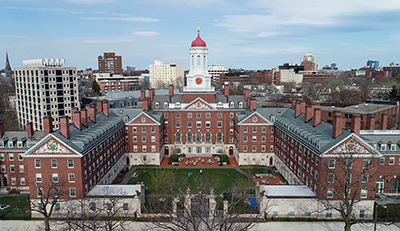With the new year comes new COVID-19 restrictions. In late December of 2021, select colleges began announcing a mandatory virtual semester. With the holiday season coming to an end, schools and universities must figure out what to do considering the spread of the virus. This campus shutdown replicates the shutdown in 2020; however certain aspects have changed.
Certain Ivy League institutions decided to only mandate the first two weeks of the semester as virtual. Harvard led the virtual charge and soon after, several schools around the country followed. Residential universities can fall vulnerable to outbreaks, especially at the start of the semester. Undergraduate students tend to live in close quarters with roommates on or off-campus apartments which can increase their likelihood of contracting COVID-19.
Several students travel across the country or internationally to attend classes and may face plenty of challenges when on-campus learning resumes. Commuting back to campus for state and international students may pose a serious financial issue amid the pandemic. Other opportunities such as studying abroad will come to a halt as universities figure out their next move. About 10% of the 400 major universities the group reviewed plans to start online for the spring semester.
“If my school went virtual I would be disappointed but understanding. As someone who is concerned about COVID-19, I want everyone to be healthy and comfortable. If a shutdown happened, I would still feel like I’m getting my money’s worth. I know a lot of people struggled with online classes in high school, but in college, virtual is so much better. I feel more prepared and confident about the courses I’m taking,” Kennesaw State University student Carly Bedenbaugh said.
In addition to virtual learning, other schools have mandated wearing masks on campus. While certain schools took this intermediate route, others took to a more extreme option. Institutions such as Princeton University, Duke University, Oregon State University and the University of New Mexico require students to receive their boosters near the start of the semester. New York’s governor, Kathy Hochul, called for the New York State and New York City universities to require booster shots for students who want to return to campus.
“I rely on human interaction, and I learn so much better in person. I would feel like I’m getting a rip off college experience…I don’t think virtual learning is worth the money. I feel as though the transition would negatively affect my grades and my knowledge intake,” senior Abigail Klinkert said.
The impact of COVID-19 and the omicron variant may roll over into the next school year and affect a new group of college students. As the class of 2022 prepares to walk across the graduation stage, they may face a modified learning style waiting for them in the fall. Mask mandates and Zoom calls may become the new normal for both college and high school students in the future.
